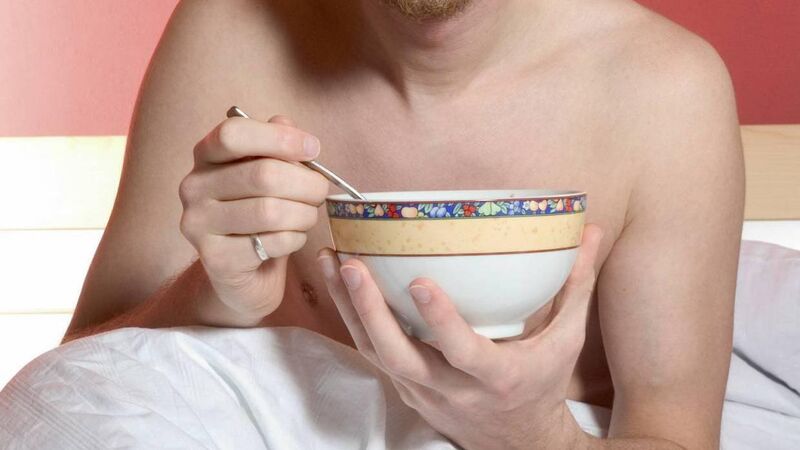Cut out these processed foods as a step to healthier lifestyle

Healthy, right?
Only, more often than not, I don’t get round to it and end up going across to Tesco for a chicken and stuffing sandwich, and a packet of crisps.
I mean, those packaged salads aren’t up to much and cannot compete with the craving for those chicken-stuffed, mayonnaise-sodden processed bread sandwiches and the salty crunch of a packet of crisps.
In 2023, the Irish Heart Foundation published a compelling report called Primary prevention of cardiovascular disease: Best practices and Lessons for Ireland. The position paper compiled by retired Professor Ivan Perry of the School of Public Health, UCC, recommends radical action.
“Without the implementation of bold policy initiatives, we can expect continued and increased deaths and ill health driven by risk factors,” warned Prof Perry.
Diet is the key risk factor via its effects on body weight, diabetes and blood pressure. The evidence shows that poor diet is the single biggest risk factor for chronic illness - exceeding the combined effects of tobacco, alcohol, and physical inactivity.
Yet as soon as we enter the local supermarket or convenience store, all the latest information passes over our heads as we indulge in pizza, biscuits, chocolate, fizzy drinks, and baked goods.
UK consultant cardiologist Dr Neil Srinivasan recognises the conundrum: “At the centre of all this is our ready access to food that has gone through a large degree of processing.”
To help us out, Dr Srinivasan recommends five foods that we should avoid. Breakfast cereals are his number one no-no.
“These are the foods that have gone through multiple processes during manufacturing,” he told the UK Daily Telegraph, explaining that people who eat the most ultra-processed food (UPF) are 24% more likely to have serious heart disease or a stroke.
“Each 10% rise in daily intake of UPF was linked with a total 6% increase in heart disease risk.
“Sadly, baked patisserie goodies, on-the-go cereal bars and biscuits all fall under the UPF-laden category.”
The other top four ultra-processed foods to avoid include salami (soaked in saturated fats), crisps (high in saturated fats, calorie dense and filled with additives), ice-cream (also full of additives), and fizzy drinks (high in sugar and additives).
“Cut out sugary beverages altogether,” says Dr Srinivasan. “Excessive intakes of sugar from sugar-sweetened beverages are associated with a risk of obesity, hypertension and Type-2 diabetes.”
Medical doctor and author of Ultra-processed People, Chris van Tullekan explains how Coca-Cola is the best example of how UPF hijack taste interactions to make us eat or drink more.
Coca-Cola tastes bitter from caffeine as well as sour from added phosphoric acid. Van Tullekan states that together they allow a huge amount of sugar to be smuggled past the tongue.
“But they don’t do it alone. The drink’s fizziness contributes too, as does the suggestion to serve it ice-cold. For reasons that aren’t entirely clear, you can suppress sweetness if you make something cold and fizzy.”
Think about warm, flat Coke - despite the bitterness, it’s so sweet, it’s disgusting.
Whether we learn to want a particular flavour seems to depend on how much our blood sugar changes when we consume it. The more sugar goes up, the more it is desired.
As for all those other additives, there is mounting evidence to suggests emulsifiers, preservatives, modified starches and other additives damage the microbiome, which could allow inflammatory bacteria to flourish and cause the gut to leak.
The gut is lined with a mucus layer that is full of antibodies and immune cells that interplay with the microbiome - which makes one of the body’s largest immune organs. Microbes live in a warm wet mucus that feeds them and limits their ability to leave the gut.
To cut a long story very short, the bacteria in the colon ferment fibre and make energy for themselves, which creates other molecules called short-chain fatty acids that the body uses for a variety of purposes, including to “reduce inflammation, regulate the immune system and as specialist fuels for the heart and brain,” says Dr van Tullekan.
A review in Nature (2015) published a series of animal studies on the effects of dietary emulsifiers on the microbiome and concluded that they “may have contributed to the post- mid- twentieth century increase in the incidence of inflammatory bowel disease, metabolic syndrome and perhaps other chronic inflammatory diseases”.
Now that we have the accumulating evidence, and at a time when health services are overwhelmed by chronic disease that is directly linked to poor diet, is it time to reconsider the dominance of ultra-processed foods in our daily diet?
If the task is just too overwhelming - perhaps cutting out five major culprits - breakfast cereals, salami (including pepperoni), crisps, ice-cream and fizzy drinks - is a good place to start.
First step - no more crisps at lunchtime.
Dr Catherine Conlon is a public health doctor and former director of human health, safefood.







 App?
App?


